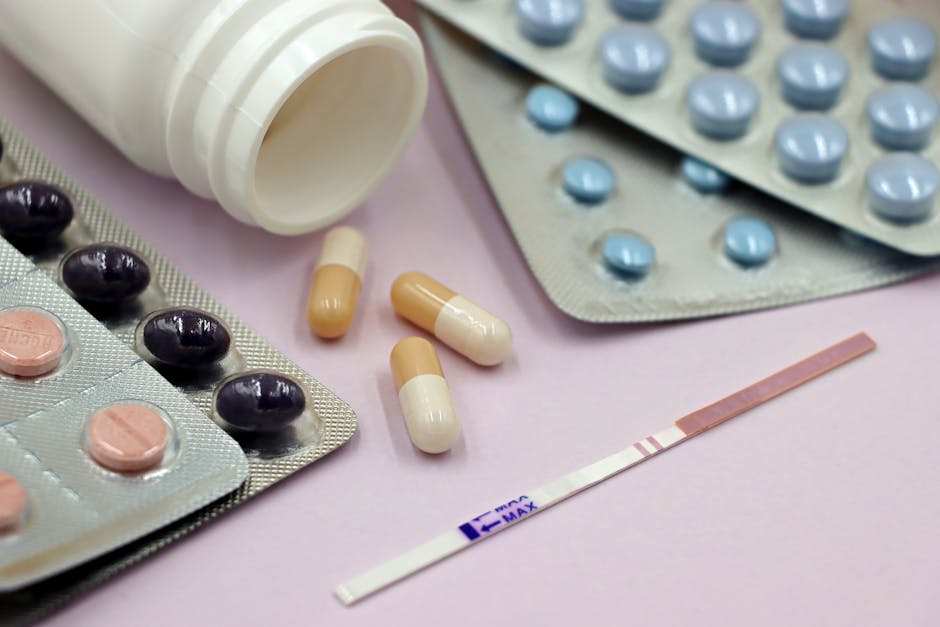Introduction
Hormonal imbalances can significantly impact various aspects of health, from mood and metabolism to reproductive function and energy levels. Understanding the causes, symptoms, and potential remedies for hormonal imbalances is crucial for maintaining overall well-being. This article provides a comprehensive overview of hormonal imbalances, exploring common causes, identifying key symptoms, and outlining potential solutions.
Understanding Hormonal Imbalances
What are Hormones?
Hormones are chemical messengers produced by endocrine glands that travel through the bloodstream to tissues and organs. They regulate a wide range of bodily functions, including:
- Growth and development
- Metabolism
- Reproductive function
- Mood
- Sleep cycles
What Causes Hormonal Imbalances?
Hormonal imbalances can occur due to a variety of factors, including:
- Age: Hormone levels naturally fluctuate throughout life, particularly during puberty, pregnancy, and menopause.
- Stress: Chronic stress can disrupt hormone production.
- Medical Conditions: Conditions like polycystic ovary syndrome (PCOS), thyroid disorders, and diabetes can significantly impact hormone balance.
- Medications: Certain medications can interfere with hormone production or function.
- Poor Diet: Nutritional deficiencies can disrupt hormone synthesis and regulation.
- Environmental Factors: Exposure to toxins and endocrine disruptors can alter hormone function.
- Lifestyle Factors: Lack of sleep, excessive alcohol consumption, and smoking can all contribute to hormonal imbalances.
Common Symptoms of Hormonal Imbalances
Symptoms in Women
Hormonal imbalances can manifest differently in women. Common symptoms include:
- Irregular periods
- Heavy bleeding
- Hot flashes and night sweats
- Vaginal dryness
- Mood swings, anxiety, and depression
- Weight gain
- Acne
- Hair loss or thinning
- Fertility problems
Symptoms in Men
Men can also experience hormonal imbalances. Common symptoms include:
- Erectile dysfunction
- Low libido
- Fatigue
- Muscle loss
- Weight gain
- Hair loss
- Breast enlargement (gynecomastia)
- Mood swings and depression
Diagnosing Hormonal Imbalances
When to See a Doctor
If you suspect you have a hormonal imbalance, it’s crucial to consult with a healthcare professional. They can evaluate your symptoms, conduct necessary tests, and recommend appropriate treatment.
Diagnostic Tests
Common diagnostic tests for hormonal imbalances include:
- Blood Tests: Measure hormone levels in the blood.
- Urine Tests: Assess hormone levels and metabolites.
- Saliva Tests: Can be used to measure cortisol levels.
- Imaging Scans: Such as ultrasound or MRI, to examine the endocrine glands.
Treatment Options for Hormonal Imbalances
Lifestyle Modifications
Often, lifestyle changes can help regulate hormone levels:
- Balanced Diet: Focus on whole foods, lean protein, and healthy fats.
- Regular Exercise: Promotes hormone balance and reduces stress.
- Stress Management: Practice relaxation techniques like yoga, meditation, or deep breathing.
- Sufficient Sleep: Aim for 7-8 hours of quality sleep per night.
- Limit Alcohol and Caffeine: Excessive consumption can disrupt hormone balance.
Medical Treatments
In some cases, medical intervention may be necessary:
- Hormone Replacement Therapy (HRT): Used to replace hormones lost due to menopause or other conditions.
- Birth Control Pills: Can regulate menstrual cycles and reduce symptoms of PCOS.
- Anti-androgen Medications: Used to reduce androgen levels in women with PCOS or hirsutism.
- Thyroid Medication: Used to treat thyroid disorders.
- Diabetes Medications: Used to manage blood sugar levels in people with diabetes.
Natural Remedies
Some natural remedies may help support hormone balance, but consult with your doctor before using them:
- Herbal Supplements: Such as chasteberry, black cohosh, and ashwagandha.
- Acupuncture: May help regulate hormone levels.
- Essential Oils: Some oils, like clary sage and lavender, are believed to have hormone-balancing properties.
Conclusion
Hormonal imbalances are common and can have a significant impact on overall health and well-being. By understanding the causes, symptoms, and treatment options, individuals can take proactive steps to manage their hormonal health. Consulting with a healthcare professional is essential for accurate diagnosis and personalized treatment plans. With proper care and attention, it’s possible to restore hormonal balance and improve quality of life.
